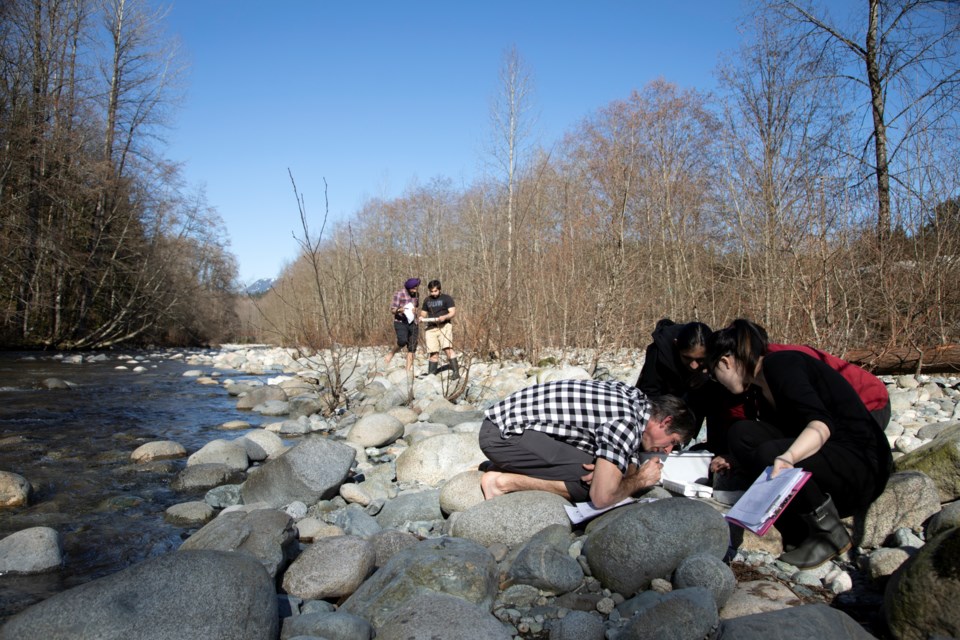Capilano University is offering two new bachelor’s degrees to address environmental challenges and include Indigenous knowledge.
The bachelor of environment and society (Environmental Studies) and bachelor of environment and society (Environmental Sciences) degrees will offer students a multidisciplinary approach to environmental issues.
Courses in the new programs will be offered at CapU Squamish and at the main campus in North Vancouver.
The campus will provide opportunities for students to engage in community-focused learning and fieldwork.
Cheryl Schreader, a geography professor at CapU, said the university is committed to including Indigenous perspectives in the curriculum.
“Environmental issues, especially those concerning lands and waters, must include Indigenous knowledge to be comprehensive,” Schreader said.
“We collaborated with Indigenous scholars and community members to ensure that traditional ecological knowledge is a core component of these programs.”
According to a CapU press release, both 120-credit degrees will launch fully in fall 2025, with select courses available in fall 2024.
Upper-year students will specialize in topics such as climate change adaptation, biodiversity, and urban sustainability.
Collaboration with Átl'ka7tsem/Howe Sound Biosphere Region Initiative
According to Schreader, the university worked closely with the folks with the Átl'ka7tsem/Howe Sound Biosphere Region Initiative to give students region-specific, hands-on learning experiences.
“Students are able to learn and apply skills directly in the field and within communities, which benefits both the students and the community,” Schreader said.
“We also get to learn what the communities and Nations need, and through our classes and student projects, we can work with our partners to create studies and data sets that are relevant to the communities themselves.”
Schreader, who has taught at Capilano University for 27 years, said the degrees have been in development for nearly a decade.
“When we first started, the university didn’t have processes in place to consult meaningfully with the Nations,” Schreader said.
She noted that since then, CapU has established initiatives such as the Kéxwusm-áyakn Student Centre, a gathering space for students, and now has an Elder-in-residence program.
“We have also created an upper-level module on reconciliation in the natural sciences, which was developed by Leigh Joseph from the Skwxwú7mesh Úxwumixw (Squamish Nation).”
Schreader said that balancing Western scientific approaches with Indigenous ecological knowledge was one of the key challenges in developing the degrees.
"Western science and Indigenous knowledge can overlap in interesting and meaningful ways, but for us, as settlers, it was important to reach out, collaborate, and consult with Indigenous voices,” she said.
“We wanted to ensure traditional ecological knowledge was incorporated meaningfully, rather than just taught by the academy without lived experience."
Preparing students for future environmental careers
Schreader believes the program will bring together job skills in biology and geography with Indigenous knowledge of the land and water for a complete learning experience.
On the importance of Indigenous knowledge in the program, Schreader emphasized, “without it, the learning would not be complete.”
“As someone who’s been a geographer for a long time, I think it’s important for those of us who've been in our fields for a while to unlearn how we were taught to approach our disciplines,” she said.
“I believe it's crucial for young people to move forward with this new understanding.”
Bhagyashree Chatterjee is The Squamish Chief’s Indigenous affairs reporter. This reporting beat is made possible by the Local Journalism Initiative.
Please note that this story has been corrected to clarify where the courses will be offered: Courses in the new programs will be offered at CapU Squamish and at the main campus in North Vancouver. The original said offered in Squamish, without reference to the North Vancouver campus. The Squamish Chief apologizes for this error.



